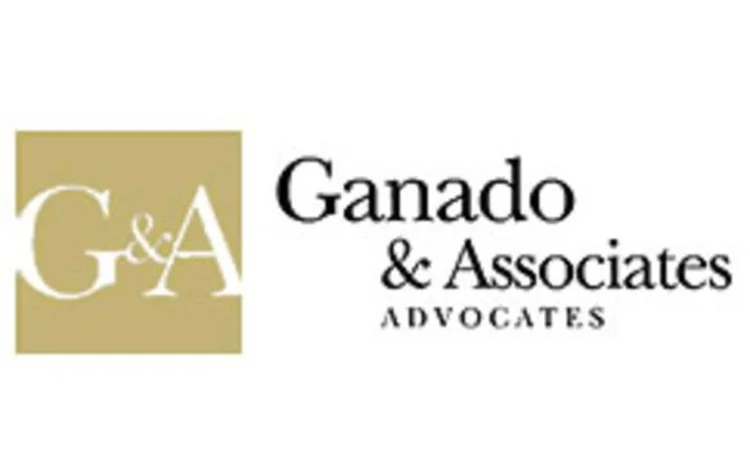
Sponsored feature: Ganado & Associates

Background
A relatively recent phenomenon is the setting up of fund platforms in Malta where the manager of the platform retains the risk management function and also sets general investment strategies for implementation by sub-investment managers located outside Malta, which would not form part of the same group as the manager but are normally regulated in their country of domicile.
The Malta Financial Services Authority (MFSA) has regulated such outsourcing by applying the Markets in Financial Instruments Directive (MiFID) rules on outsourcing also to the fund management industry. This extension of MiFID to fund managers has worked very well since the Maltese fund management firm would be required by the MFSA to have substance in Malta, to retain responsibility for its functions vis-à-vis the fund, and to monitor and supervise the manner in which the sub-investment manager is implementing the investment strategies set by the Maltese manager.
The Alternative Investment Fund Managers Directive and the current MFSA Rules
The Alternative Investment Fund Managers Directive (AIFMD) provides for the delegation and outsourcing of functions by the AIFM. The implications of the directive on AIFMs are significant. While the directive does not impose any limitations with regard to the delegation of administrative and technical functions, on the other hand, delegation of portfolio and risk management functions is subject to numerous limitations.
Under both the AIFMD and the current MFSA regime, outsourcing of portfolio and risk management functions is only allowed after notification to the competent authority of the home member state of the AIFM (i.e., the MFSA in the case of Malta-based AIFMs). Such delegation may only be made to authorised or approved undertakings.
In the case of delegation to undertakings established in third countries, the AIFMD provides that the delegation may only be made where the third-country undertaking is an authorised undertaking and a co-operation agreement exists between the two competent authorities. In the case of one of these conditions not being met, prior approval from the competent authority must be sought.
Furthermore, the AIFM must demonstrate that the delegate and its personnel are qualified and capable to perform the functions delegated and that the undertaking has sufficient resources to perform the respective delegated tasks. This is generally the current position adopted by the MFSA under the current outsourcing rules.
Both the current and the soon to be in force AIFMD rules do not exonerate the AIFM from liability towards investors and towards the AIF upon delegation of functions. Under the current rules, the licence holder remains fully responsible for discharging all of its obligations. The AIFMD as well as the MFSA rules require that the outsourcing must not result in the delegation by senior management of its functions.
The delegation should not be such that, in essence, the manager would be considered a letter-box entity. Indeed, the AIFM is expected to retain certain functions and responsibilities. This is in line with the approach adopted by the MFSA so far in respect of fund management entities domiciled in Malta.
Notwithstanding the similarities, there are slight differences within both set of rules. The AIFMD requires that delegation of portfolio and risk management functions is made for objective reasons. Objective reasons may include, but are not limited to, optimising business functions and processes, reducing costs and seeking better expertise in the performance of certain functions. Although no such requirement exists under the current MFSA rules, delegation is generally done on such a basis.
In some aspects, the current MFSA rules go further than the directive and impose clearer obligations, both on the delegate as well as on the AIFM. In particular, the MFSA rules impose obligations on the delegate to allow the licence holder to have access to data related to the outsourced activities, obligations for securing confidential information, disclosure of developments that may have a material impact on the delegates ability to carry out the outsourced activities, as well as a requirement to maintain a contingency plan for disaster recovery.
Having said that, we would expect the level 2 regulation to follow the same detailed principles, which are currently implemented by the MFSA as an extension of the MiFID regime to fund managers.
Conclusion
This article has shown that the majority of rules on outsourcing provided under the AIFMD are already in place under the MFSA rules. We are hopeful that most of the obligations imposed by the level 2 regulations will be similar and complement the current MFSA rules on outsourcing. Nevertheless, outsourcing arrangements and delegation agreements should be subject to more scrutiny and attention.
[ASSET_TAG_ERROR]
Sponsored content
Copyright Infopro Digital Limited. All rights reserved.
You may share this content using our article tools. Printing this content is for the sole use of the Authorised User (named subscriber), as outlined in our terms and conditions - https://www.infopro-insight.com/terms-conditions/insight-subscriptions/
If you would like to purchase additional rights please email info@risk.net
Copyright Infopro Digital Limited. All rights reserved.
You may share this content using our article tools. Copying this content is for the sole use of the Authorised User (named subscriber), as outlined in our terms and conditions - https://www.infopro-insight.com/terms-conditions/insight-subscriptions/
If you would like to purchase additional rights please email info@risk.net